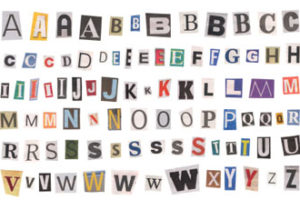
Grammar Rules: Further vs. Farther
Believe it or not, the words further and farther have different meanings, although people tend to use them interchangeably. And it’s no surprise, because these two words look and sound similar, and the difference in meaning is subtle. Plus there are a few circumstances when they are legitimately interchangeable. Let’s solve the further vs. farther…Read More

Ten Grammar Rules Every Writer Should Know
The more experience I gain as a writer, the more I’m convinced that writing is one of the most difficult skills to master. It’s not enough to tell a great story, share an original idea, or create an intriguing poem; writers are also obligated to pay diligence to the craft. While the content (or message)…Read More

Grammar Rules: Split Infinitives
It’s important that we, as writers, know the tools of our trade. Part of our job is to understand the mechanics of language, which includes grammar rules. Yet many writers find themselves asking… What are split infinitives? It’s a term that grammarians and linguists throw around a lot, yet few people, including writers, seem to…Read More

Grammar Guidelines Versus Grammar Rules
In grammar, there are rules and then there are guidelines. Rules may sometimes be broken, but usually breaking the rules of grammar leads to prose that sounds awkward and is indisputably incorrect. But breaching the guidelines often leads to prose that sounds more natural. An example of a grammar rule would be the use of…Read More

Grammar Rules: Who vs. Whom
It sounds old-fashioned: To whom have you sent those letters? Modern colloquial speakers expect something more along the lines of Who did you send those letters to? While whom may sound outdated, it is still the technically correct word in certain situations. Let’s examine the rules and practices surrounding who vs. whom. One of our…Read More

Grammar Rules: That and Which
There’s a lot of confusion about that and which. These two words are often used interchangeably, even though they’re not necessarily interchangeable. Historically, that and which may have carried the same meaning, and some English dialects may allow for that and which to be swapped without affecting the meaning of a sentence. However, in American…Read More

Grammar Rules: Lay or Lie
One of the most common grammatical mistakes that we see in both speech and writing is misuse of the words lay and lie. This error is so common, it even slips past professional writers, editors, and English teachers — all the time. Maybe eventually these two words will morph into one and have the exact same meaning,…Read More

Grammar Rules: i.e. and e.g.
Occasionally, we come across the abbreviations i.e. and e.g., but what do they mean, and what is the difference between them? How do grammar rules apply? These two terms originate in the Latin language and are just two of the many Latin phrases that have survived into modern language. Both i.e. and e.g. are abbreviations…Read More

Grammar Rules: Fewer vs. Less
It’s a battle between words: fewer vs. less. Are they interchangeable? Do these words have different meanings? How can we use them correctly? Many people don’t realize that these two words do not share the same meaning and therefore cannot be used interchangeably. As a result, both fewer and less are often used incorrectly. The…Read More

Grammar Rules: Capitalization
Proper capitalization is one of the cornerstones of good grammar, yet many people fling capital letters around carelessly. Not every word deserves to be capitalized. It’s an honor that must be warranted, and in writing, capitalization is reserved only for special words. Most of the grammar rules are explicit about which words should be capitalized….Read More



